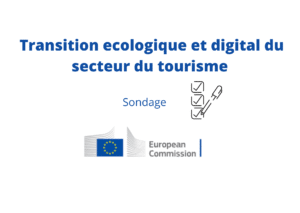The OCTs are traditionally very popular tourism destinations. Raging from tropical beaches and lush forests to fjords and glaciers, the appeal of the OCTs is unmistakable. Consequently, many of the OCTs have invested heavily in this sector, providing both recreational activities ranging from nautical sports to leisure hotel complexes along the coast, to opportunities to visit rich nature locations and off-the-beaten-track staggering panoramas.
Tourism is a key sector in the OCTs, in many cases being a significant contributor to local GDP. Nevertheless, the sector has suffered during the last decade from the fluctuations of the international economy, from instability, from macroeconomic imbalances, as well as from the disastrous impact of the Covid 19 pandemic. Action is being taken in many OCTs to support local businesses in overcoming the effects of the pandemic. In parallel, efforts to overcome regulatory obstacles are also undertaken, as well as measures to rebound quickly after the Covid 19 pandemic and to implement risk resilience plans.
Tourism in the OCTs can generally be split in two categories:
• Maritime tourism, which covers tourism that is largely water-based rather than land-based (e.g. boating, yachting, cruising, nautical sports).
• Coastal tourism, which covers beach-based recreation and tourism (e.g. swimming, surfing, sun bathing), and non-beach related land-based tourism in the coastal area.
For a wide range of OCTs the sector is under increasing pressure, not only due to the Covid 19 pandemic. The mass-tourism business model is currently at a ‘locked horns’ juncture with regards to long term sustainability because it creates extensive environmental burdens. OCTs are now exploring the possibility of accelerating the transformation towards niche blue tourism destinations. This would enable them to offer tourists spectacular experiences, but all in a sustainable fashion, protecting the rich biodiversity which makes them so unique.












